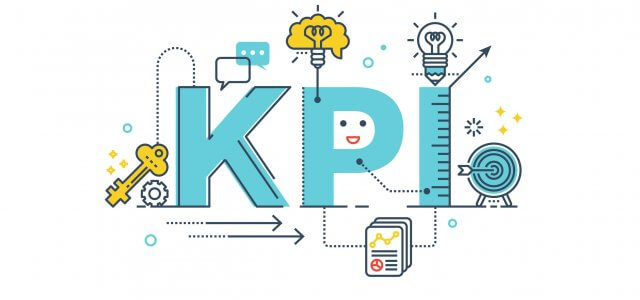How to Make Good on Your New Year’s Resolutions (failproof plan)
Just 3 days ‘til New Year’s… and only 2 until New Year’s Eve! Have you set any personal or professional New Year goals yet? Did you achieve your goals for the previous new year?
I’ve made my resolutions for the coming year… and somehow managed to cross off ⅔ of my resolutions from last year. (I know, I’m impressed too!) It’s so easy to lose momentum and forget about the goals that you set for yourself earlier – in lieu of other, seemingly more pressing matters of the moment. Which is probably why most of us find it so satisfying to cross things off to-do lists (call me OCD, but I know I’m not alone here).
These were my top 3 goals from last year’s resolutions:
- Increase productivity at work
Learn a new language to a functional level- Get ripped (haha)
None of these items could be crossed off overnight. They were goals I had to either commit to, or just completely forget about.
I hit most of my goals for the new year, except for number 3 (not even close!). What was I thinking?! And yet, it’s going back on this year’s list of top 10 New Year’s resolutions.
Still, 2 out of 3 isn’t so bad. And this time, I have a plan.
Considering the New Year’s resolutions that I managed to cross out, it’s pretty obvious why I achieved some goals while failing miserably at others. The New Year resolutions that I made good on might have been big goals, but I had subconsciously turned them into tiny daily goals, making them a lot more doable. The Japanese philosophy of Kaizen – which focuses on making very small improvements every day – must have rubbed off on me.
Here’s what I learned from last year:
Resolution 1. Increase productivity at work
In my case, this focused on translation (Chinese – English) and writing (English). It was just a matter of finding opportunities and submitting proposals, but coordination definitely involved some trial-and-error. I might have unwittingly bit off more than I could chew at the beginning.
Because I wanted to build as much experience as possible in as little time as possible – I jumped on every chance I got. There was one month where I averaged 2-3 hours of sleep per night while I spent every waking moment working.
Never again.
I did end up building considerable experience and even learned some new skills that would later come in useful again… but it was too much and too fast.
Lesson learned. Don’t rush into things.
Resolution 2. Learn a new language to a functional level
There are a lot of reasons to learn a new language:
- it strengthens your brain connections, improving function
- if/when abroad, it allows you to be more independent
- it lets you communicate with and befriend more people
- and it opens up your horizons by helping you understand new ideas and cultures.
National language certification isn’t necessary, but it was a personal goal of mine because I decided to spend some time in a new country (Poland) and was flirting with the idea of enrolling in a degree program while abroad. National language certification would allow me to apply to programs taught in that language – considerably less costly than programs conducted in English.
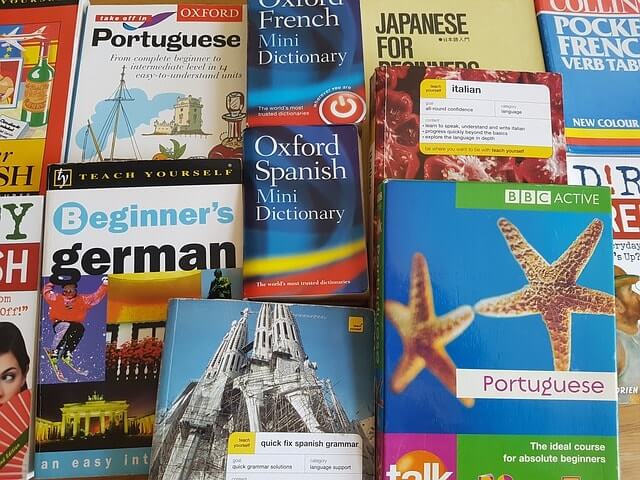
Learning a new language is arguably one of the easiest ‘big’ goals to break down, especially if you take a language course. Every week, I participated in 2 or 3 classes, each one about an hour long. On days when I didn’t have classes, that’s when I would do homework. I literally devoted a little bit of time each day to learning a new language. And it worked: after 2 semesters, I signed up for the exam, and now I have national certification that will let me apply to any degree program taught in that language.
Lesson learned. Consistency counts. Spend a little time learning each day, and after a while, you’ll have built up more skills than you even realized. (Next level certification – I’m coming for you!)
Resolution 3. (Fail to) get ripped
Even I can’t help but laugh at myself here. Really, not even close. Looking back, I totally get why I failed this one so miserably. My attitude towards this goal was the complete opposite from my attitude for other goals. Instead of setting small, reasonable daily targets, I had an all or nothing approach; either work-out for an hour or not work-out at all.
(Remember that month I mentioned, where I spent every waking moment working apart from 2-3 hours of sleep per night? Yeah.)
Fail.
This year, I’m putting the spotlight on consistency. Whether it’s 15 minutes or 60, I’m aiming to just find any amount of time, as often as I can, to break it down and make it more realistic. Forget 60-minute work-outs. If I can manage 15 minutes a day, that will still get me closer to my goal than just giving up completely because I couldn’t find an entire hour of free time.
Lesson learned. Break down bigger goals into smaller, daily tasks.
The most popular top ten New Year’s resolutions for most people include boosting focus, getting organized, increasing productivity, learning a new skill and improving with feedback. These have definitely made it onto my own list of New Year’s resolutions.
And I have a plan to make good on this year’s New Year’s resolutions – based on lessons learned from last year’s failures and successes:
1. Get focused
I highly suspect that multi-taskers (such as myself) are actually people who get easily distracted. I just counted, and I have 18 tabs open in my browser right now. All of them are related to my job (no, I’m not just streaming episodes of Curb Your Enthusiasm), but only 3 of them are relevant to my current task. I bet I could finish up a lot sooner if I would just close the other 15 tabs… and my computer would probably run faster, too.
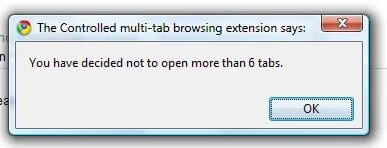
When old habits die hard, thank goodness for technology! Tab management extensions like Controlled Multi-Tab Browsing let you limit the number of tabs that can be opened at any given time. So, if you set it to 6, you would only be able to have 6 tabs open at once, and would have to close one of those 6 tabs to open a new one.
Less distractions = more focus.
2. Improve with feedback
Feedback is important. Getting it can be difficult. It’s easy to ask your friends and family for their opinions on your latest product or service strategies, but getting it from your customers (without bothering them) can be tricky. If your business has the type of easy rapport with its customers that encourages openness and a willingness to share opinions and experiences, then these 8 ways to get customer feedback online will be at the top of your list.
If, however, you prefer to be as nonintrusive as possible while gathering a more candid form of customer feedback, social listening is a better method.
Social listening is the process of paying attention to – or listening to – relevant online conversations to access key customer insights. These conversations are made easy to find by monitoring particular keywords and phrases – such as your personal brand, product or name of your business – with a social listening tool like Brand24. Whenever your brand (or whatever you’re monitoring) pops up in public online conversations, the tool sends you notifications and you can access each mention from inside your dashboard, no matter where the mentions are found on the Internet.
More candid feedback = better understanding of customers and what they like + dislike about your product or service.
3. Get organized
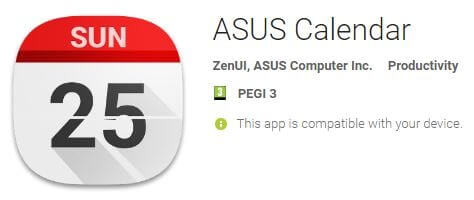
I like to have 2 calendars on-hand: a mobile calendar on my phone, as well as a paperback calendar in my bag. I can plan and organize my schedule anytime.
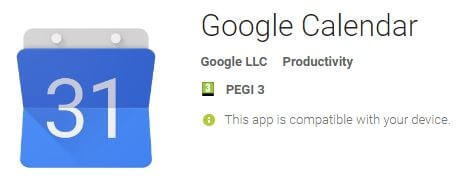
I use the Asus Calendar App to keep my personal life together, but I’m also a longtime user of Google Calendar, which is what we have at the office. My work calendar is synced to my personal calendar (but not the other way around) to make sure that both schedules don’t overlap.
Paperback calendars are a free-for-all. You probably have a free paperback calendar (at least one) lying around from events that you’ve attended. I always do, and if they’re a good size, I’ll make use of them. If not, there are plenty of options available on the Internet and in local stores.
Better organization = increased efficiency.
4. Increase mobility & productivity
Sometimes, I get hit with an idea at the most inconvenient moment. Usually, it’s after I’ve settled in for the evening and am lying in bed, too tired to grab a pen and paper to make a note. I feel like I lose out on 10 solid ideas per week this way. At least.
I don’t enjoy writing anything of length on my phone. I prefer having either a real keyboard or pen and paper to work with. I’ve recently gotten into the habit of leaving a small notepad and pencil by my bed and other places where I wouldn’t necessarily want to (or could) move from after settling in (in the kitchen and the glove compartment of the car, etc).
The paperback calendar that I always travel with also has a section for taking notes in back, which I make thorough use of.
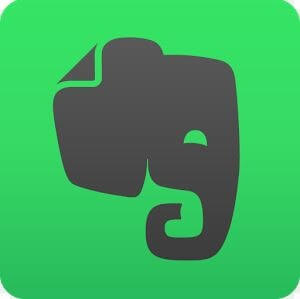
And for times when I’m mobile and need to make a quick note, Evernote saves the day. I use it to manually input notes, record audio notes, and save interesting web pages. It’s true, I still rely heavily on handwritten notes, but when I need to use my phone, this app makes it easier to deal with.
Increased mobility = boosted productivity.
5. Learn a new skill
Whether you’re making personal or professional resolutions, it usually involves personal development in some form.
If you can afford the time and money, taking a class is my favorite way to learn something new. For starters, there’s a real, live person to explain things to you. Secondly, you can meet new people. Thirdly, since you’re investing your time and money, you’re more motivated to make an actual effort.
If you don’t have time to physically commute to-and-from class, you can take an on-line course. I took a course on mobile development in Android with Udacity and I really enjoyed it. All I had to do was set aside some time, and by the time the course was over (I kept my own pace), I had acquired a few new skills. On busy weeks, I just caught up with my “classmates” over the weekend. No commute required.
If your budget is what’s been stopping you, then YouTube is going to be one of your greatest resources. Google anything from “how to play guitar” to “photography tips” and you’ll find a bunch of video tutorials to choose from in nearly any topic. You’ll need to be both diligent and disciplined enough to find your own learning materials and keep up with your “classes”, but all you need is an Internet connection and a place to learn.
More skills = more opportunities.
Make the new year your most productive year to date
The clock is ticking, and 2018 is fast approaching. I hope you’re ringing in the new year exactly as you want to – whether it’s at a crazy party, a relaxed get-together with friends, lounging on the beach, huffing and puffing up a mountain, or half asleep with a glass of wine and a good book…
May the New Year be one in which you find focus, improve with the help of necessary feedback, get organized, increase productivity, and learn a new skill to uplift all aspects of your life – both personally and professionally!






![What is Brand Awareness? Guide & 9 Powerful Tactics to Build It [2022]](https://brand24.com/blog/wp-content/uploads/2020/12/15-The-ultimate-guide-to-brand-awareness-1400x660x2-640x300.png)

